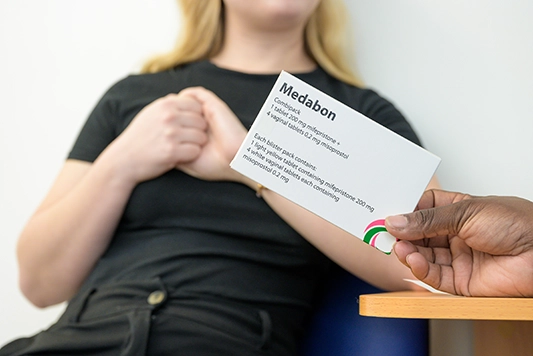MSI UK do not provide the emergency contraceptive pill but we believe it is essential to provide quality information about all contraceptive methods.
The ‘morning after pill’ is not the same as the abortion pill. The abortion pill ends an existing pregnancy whilst the ‘morning after pill’ prevents a pregnancy, which is why it does not cause an abortion.
In this blog, you will find information about:
- What is the difference between the ‘morning after pill’ and the abortion pill?
- What is the most effective form of emergency contraception?
- Where can you get emergency contraception?
What is the difference between the ‘morning after pill’ and the abortion pill?
The emergency contraceptive pill, also known as the ‘morning after pill’ is a progestogen-only hormone pill and works by delaying the release of an egg from an ovary, therefore preventing pregnancy. The ‘morning after pill’ can be taken up to 96 hours (5 days) after unprotected sex to prevent a pregnancy. There is just one pill to take. The sooner you take the ‘morning after pill’, the greater the chances of avoiding pregnancy.
A medical abortion, also known as “Abortion with pills”, uses medication to end an existing pregnancy. The treatment involves taking two types of medicine at two different times. It is the safest treatment option up to 9 weeks and 6 days of pregnancy for most people.
- The ‘morning after pill’ is an emergency contraceptive: there is just one pill to take.
- The abortion pill ends a pregnancy: there are two different types of medicine to take at different times.
What is the most effective form of emergency contraception method?
Using contraception when having sex is always the best way to prevent a pregnancy – you can choose from a range of long-term and short-term methods. Remember that condoms are the only contraception method that protect against a sexually transmitted infection (STI).
If you’ve had unprotected sex or your contraception has failed, emergency contraception can also prevent a pregnancy.
There are 3 types of emergency contraception:
- the emergency contraceptive pill Levonorgestrel (LNG), also known as Levonelle: it can be taken within 96 hours (four days) of unprotected sex; however, it is most effective within the first 72 hours (three days).
- the emergency contraceptive pill Ulipristal Acetate (UPA) also known as Ellaone: this can be taken within 120 hours (five days) of unprotected sex.
- the intrauterine device (IUD or coil): this is the most effective emergency contraception and can be fitted up to 120 hours or 5 days after unprotected sex. A copper coil is a small, T-shaped copper device that is placed in a woman’s womb and can provide contraceptive protection for up to ten years. One of the benefits of using the IUD is that, once fitted, you can then choose to continue to use it as your on-going form of contraception. Long-acting reversible contraceptive (LARC) methods offer excellent protection against pregnancy, ranging from three months up to ten years. They’re ideal if you know that you do not want to have children for a while.
There are a number of factors that may affect which of the emergency contraceptive pills (Levonorgestrel or Ulipristal Acetate) is right for you – for example, your medical history, weight, or if you are breastfeeding. When you seek emergency contraception, a healthcare professional will ask you questions and assess which method will be the most effective.
It is very important to know that, because emergency contraception pills work by delaying the release of an egg from an ovary (therefore preventing pregnancy), it is unlikely to be effective when taken after ovulation (after the egg has been released from the ovary). This is why the most effective form of emergency contraception is the intrauterine device (IUD), also known as the coil. The IUD can be inserted up to 5 days after unprotected sex, or up to 5 days after the earliest time you could have ovulated (released an egg), to prevent pregnancy. We recommend talking to a healthcare professional about this when seeking emergency contraception.
Where can I get emergency contraception?
You can get emergency contraception for free from:
- GPs
- NHS walk-in centres
- Brook services (for under 25s)
- Sexual health clinics
- Pharmacies
- Some Hospital A&E Departments
To know more about the difference between emergency contraception and abortion pill
On our emergency contraception page, you will find useful information about:
- What is the “morning after pill”?
- Emergency contraception methods
- Calculator: When did you have unprotected sex?
- How the IUD works as emergency contraception
- Do I have to pay for the morning after pill?
Contraception counselling after an abortion
Contraception counselling is a part of your NHS-funded abortion care with MSI Reproductive Choices, should you wish to start a method of contraception following an abortion. If you are looking for a contraceptive method that suits your individual needs, you can book an appointment within three months of your abortion treatment.
It is important to know that MSI Reproductive Choices UK does NOT provide emergency contraception, however, we can still talk through these methods with you during a contraception counselling appointment.
Get in touch
At MSI Reproductive Choices, we are here for you and there are a number of ways you can contact us.
You can always get in touch should you have any questions about our services, would like to book an appointment or you have had treatment with us and want aftercare support.







